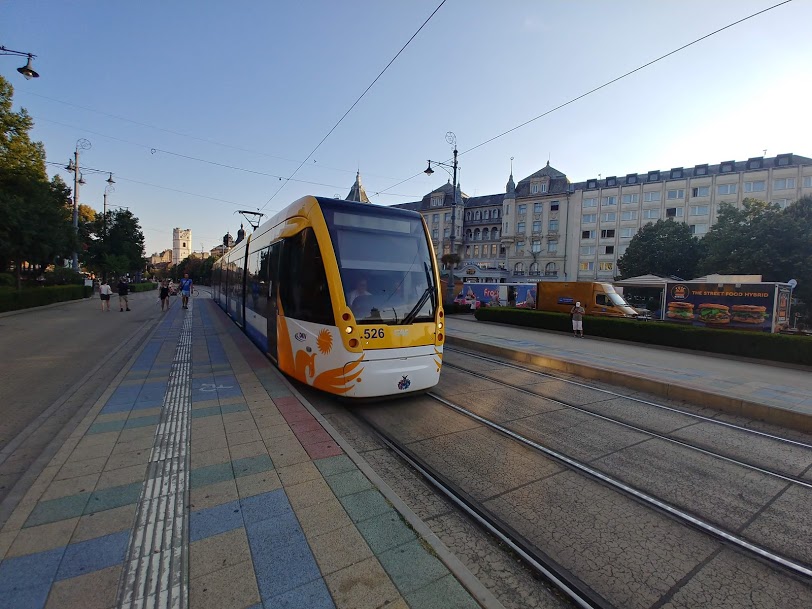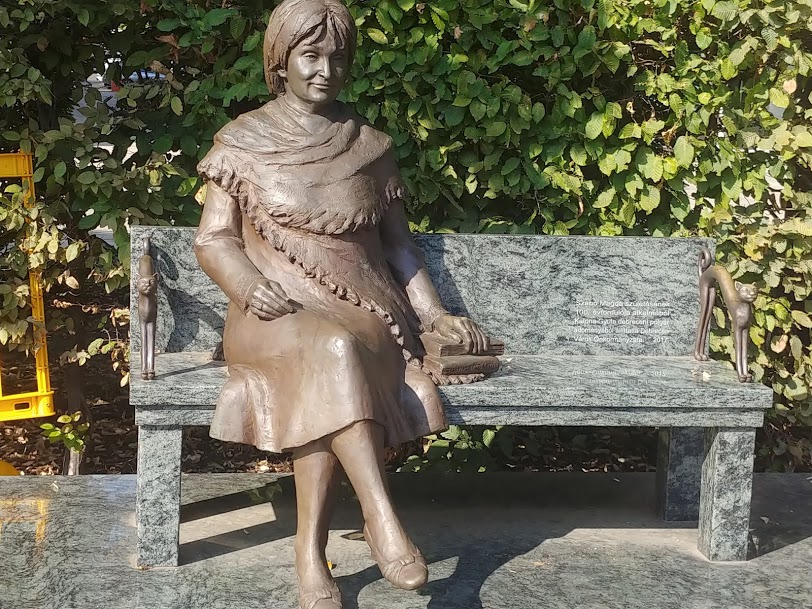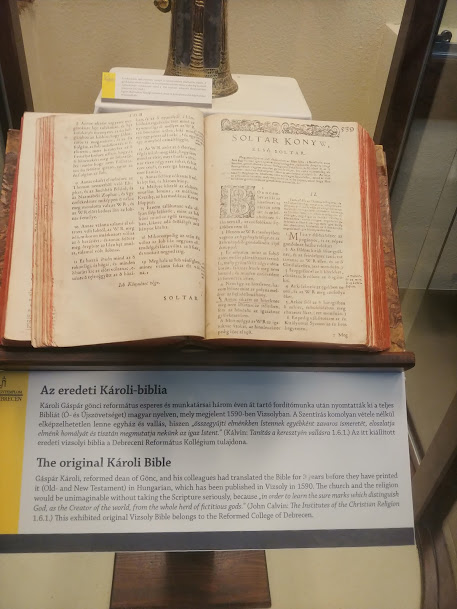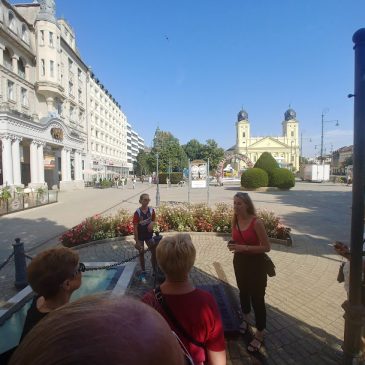It’s essential for missionaries to learn the culture in which they minister. In the American Baptist Churches, pastors and missionaries are trained to learn and honor the history and customs of their ministry contexts. We are very deliberate to avoid ethnocentrism – the practice of inflicting our cultural tastes and preferences onto other peoples. So, as the saying goes, “When in Hungary, do as the Hungarians do.”
But how do we learn the culture in such a short time? We ask Nóri to be our guide.

Jon & Amanda Good arranged for Nóri, a local cultural and historical guide, to show our team the downtown Debrecen area, teaching us about Hungarian life. Nóri lead us on a wonderful walking tour where we learned about what makes Debrecen (and the Hungarian people) so amazingly special. What did we learn about the Hungarians?
The Hungarian people, perhaps even more than Americans, deeply value their independence & freedom, yet honor their diverse and complex history. How easily we can forget these people lived under the rule of dictators and monarchs – whether by rule of the Austro-Hungarian Empire or by rule of the USSR – for a tremendously long time. Hungary has only been a truly free and independent nation for about 30-years.

As a consequence of war, their country’s borders have been re-drawn several times. Their religious and cultural landscape is ever-changing as this nation of young independence is eager to self-govern. The people are resilient and kind, and very genuine in their interactions with each other and outsiders.
Our walking tour included some interesting teaching moments. We learned that, while initially a Roman Catholic community, Debrecen was heavily influenced by the Calvinist reformation movement of the early 16th Century. As a result, Debrecen is now considered by many to be the Protestant capitol of Europe. The large Reformed Church in Downtown Debrecen is central to theological life here and stands as an archaeological and symbolic center to the main plaza.

But in the spirit of Protestantism, other churches are being formed. One man told me, “Hungary is experiencing a revival of God. The Spirit is moving here as it hasn’t for a very long time.”
What a fantastic opportunity to see and experience this nation’s long and distinguished history. And what an exciting time to visit a place in the process of re-introducing itself to the world.
